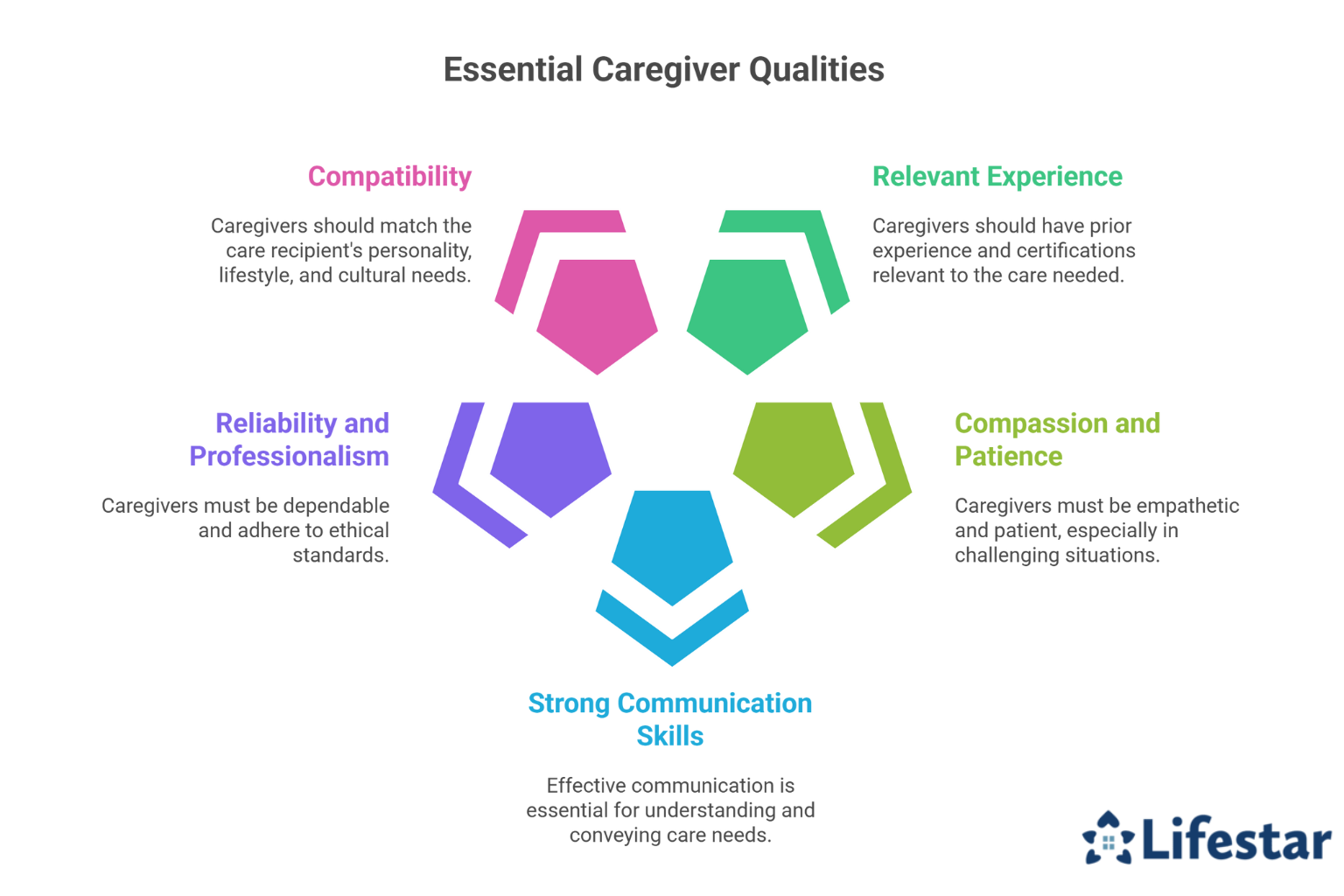
Table of Content
Finding the right caregiver can be a challenging and emotional task. Whether you’re hiring a caregiver for yourself or a senior loved one, selecting someone who’s reliable, compassionate, and capable of providing the necessary care is crucial. To help you make an informed decision, here are key aspects to look for when hiring a caregiver.
Relevant Experience and Qualifications
Start by assessing the caregiver’s background and expertise. Look for individuals with prior experience in caregiving, especially in providing care in similar circumstances to what you or your loved one needs. For example:
- If you need elderly care, the caregiver should have experience working with seniors or individuals with age-related conditions, such as dementia or arthritis.
- For specialized medical care, ensure the caregiver has relevant certifications, such as CNA (Certified Nursing Assistant) or CPR and first aid certifications.
Ask specific questions about the individual’s caregiving experiences, the skills he or she has developed, and any training he or she has undertaken. This will help you determine whether the caregiver can confidently handle the specific responsibilities of the role.
Although it may be challenging to find reliable, highly rated home care, Oklahoma City families can turn to Lifestar Home Care. Our caregivers are expertly trained to assist seniors with a wide array of important tasks, including cooking, bathing, light housekeeping, and exercise.

Compassion and Patience
Beyond qualifications, personality traits play a significant role in caregiving. Look for someone who genuinely enjoys helping others and demonstrates empathy and understanding. A caregiver who exhibits compassion can build trust and provide emotional support, ensuring comfort and dignity for the care recipient.
Patience is equally important, especially when working with individuals who may face physical or cognitive challenges. Observe how the caregiver handles stressful or challenging scenarios and whether he or she can remain calm and composed under pressure.
Strong Communication Skills
Effective communication is essential for a reliable caregiver. Your caregiver should be able to:
- Clearly understand instructions and care plans
- Keep the care recipient and family members informed about daily progress or any significant changes
- Speak in a respectful and kind tone that fosters a positive relationship
During the interview process, pay attention to how the caregiver expresses him or herself and how attentively he or she listens. Good communicators typically adapt their approach based on the care recipient’s unique needs, whether verbal or nonverbal communication is required.
Reliability and Professionalism
Caregivers must be dependable, as they play an integral role in the daily wellbeing of those they care for. Key traits of reliability and professionalism include:
- Punctuality and consistency in attendance
- Being prepared and maintaining organized routines
- Respecting privacy and adhering to ethical standards, such as confidentiality
To assess reliability, ask for references from previous clients or employers. You can learn a lot about a candidate’s work ethic and commitment by speaking with those who have firsthand experience working with the individual.
If you have a senior loved one who needs help maintaining a high quality of life while aging in place, reach out to Lifestar Home Care, a leading provider of homecare families can rely on. All of our caregivers are bonded, licensed, and insured, there are no hidden fees, and we never ask our clients to sign long-term contracts.
Compatibility with the Care Recipient
Finally, compatibility between the caregiver and the care recipient is a critical factor that shouldn’t be overlooked. Learn more in Nursing Home Care vs In-Home Care about how these differences can impact the right choice.
- Personality and interests, which foster rapport and comfort
- Lifestyle and routine, ensuring the caregiver can accommodate specific schedules or preferences
- Cultural and language considerations, which may play a role in enhancing understanding and communication
Trial periods or shadowing sessions can be helpful in determining compatibility. Observe how the caregiver interacts with the care recipient and whether they build a meaningful and positive connection.
Professionally trained caregivers can assist seniors with an array of tasks and offer respite for family members. If you’re the primary family caregiver for a senior loved one living in Oklahoma City, live-in care is available around the clock if your loved one’s health has become too difficult to manage without professional expertise. At Lifestar Home Care, we take measures to help seniors prevent illness and injury by assisting with exercise and mobility, preparing nutritious meals, helping with bathing and other personal hygiene tasks, and much more. Call today to speak with a friendly and experienced Care Manager to formulate a home care plan for your loved one.